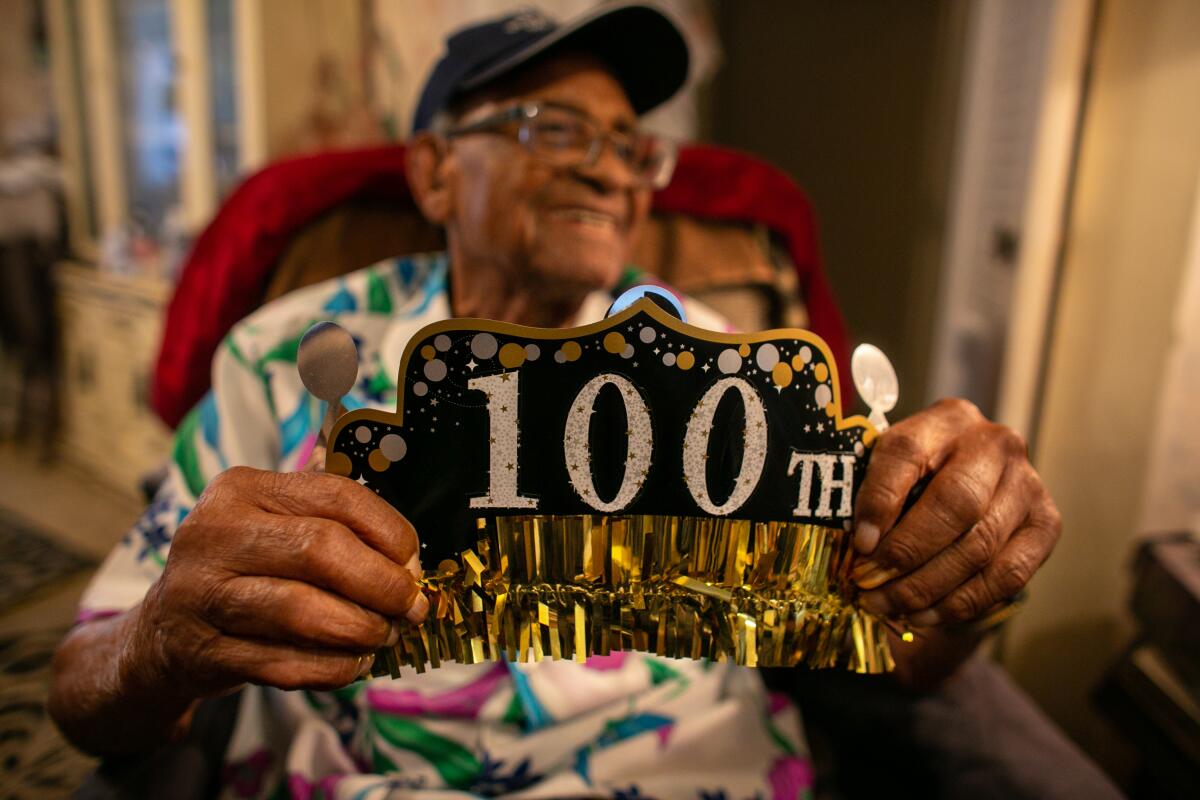Letters to the Editor: Why would anyone want to live to 100? A 94-year-old’s answer

- Share via
To the editor: At the ripe old age of 64, columnist Nicholas Goldberg is not sure whether he wants to live to the age of 100. Let me answer that at the ripe old age of 94, I definitely would like to live another six years.
Yes, one’s body begins to weaken at this age, but it is necessary to accept these changes. And yes, one’s quality of life is highly important.
My wife and I have stopped traveling, but over the years we traveled all over the world. Now, we get our enjoyment through the travel and dining adventures of our children and grandchildren.
Goldberg mentions smoking. I knew everyone well in my graduating high school class. There were 24 boys, and those who began smoking in high school or college lasted until 70 years of age, give or take some years. The eight of us remaining at age 94 never smoked.
I retired from my 18-year second career as a monthly magazine columnist only during the pandemic, when the magazine folded. Now I fill my time seeing my children, grandchildren and great-grandchildren. Have to change a light bulb by climbing up a stool? I call my son-in-law.
Martin A. Brower, Corona del Mar
..
To the editor: Goldberg ruminates about the pros and cons of living a longer life, but he misses the point about what we can learn from people with exceptional longevity (like his father).
The media have always been rife with stories of individuals smoking or eating bacon daily into their 100s. Research like ours at the Albert Einstein College of Medicine (see SuperAgersStudy.org) and by others, however, is now examining the genes associated with people living to age 95 and older to understand the basic cellular and other mechanisms that are associated with a very long life.
These genetic markers hold the promise of developing therapeutics that can enable many more of us to fight off a whole range of age-related diseases and not only live longer, but healthier well into our 10th decade.
Sofiya Milman, MD, Bronx, N.Y.
The writer is director of human longevity studies at Albert Einstein College of Medicine.
..
To the editor: I recently had my annual checkup with my doctor. I proposed this to him:
“Doc, my father died from Alzheimer’s in his mid-70s. I’m 64. I do not want to go that way. I would like to get you together with my attorney and my wife and children. I would like to develop a document that details my wish to die if and when I lose my cognitive capabilities, as determined by a very specific set of standards that we decide in advance.”
His reply was swift and unequivocal: “Craig, there isn’t a country on the planet where you could do that.”
At the end of the day, I guess, only mentally sound individuals can seek help in dying. It is not available to a cognitively impaired person, even if they were clear in advance of their decline that they preferred death over living mindlessly and perhaps sometimes violently, as my father did.
I fear my body will long outlive my brain. That is not what I wish to endure.
Craig Ellis, Palos Verdes Estates





